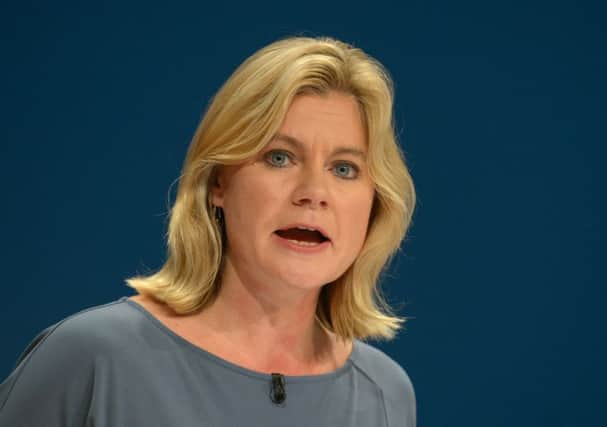Rob Pritchard: '˜Fake news' covering up cuts in schools


I have been a headteacher for over 10 years. I can say that at the moment, it has never been as bad, and the future prospects look even worse.
Since 2012, schools have accepted their duty to assist with the implementation of the cuts to help stabilise the nation’s finances. While painful, schools have, by and large, got on with the job.
Advertisement
Hide AdAdvertisement
Hide AdNow headteachers are speaking out – as members of the Association of School and College did at their annual conference and communicating direct to parents about the perilous state of finances and the consequences this will have on the education of their child.
The current situation and the prospects for the future are dire. Many areas of the North are already poorly funded when compared to the South East. When reacting to the concerns, the Government repeatedly makes three claims in response to questions about school funding:
The national funding formula will end historic discrepancies and make the system fairer;
The Government has protected core schools’ funding “and it is now at a record level – more than £40bn this year”.
Advertisement
Hide AdAdvertisement
Hide AdThere is significant scope for schools to make efficiencies.
Dealing with each of these in turn, the national funding formula does not involve an increase in school funding, but rather a redistribution of inadequate funding.
In the second stage consultation which details how this new formula will be calculated, many schools in North Yorkshire will see a cut. I am headteacher at St John Fisher Catholic High School in Harrogate. We will see a 0.9 per cent cut. We are already the lowest funded school in a low-funded local authority.
‘Core school funding’ is a clever turn of phrase that the Government uses. It refers only to 11-16 education. There have been enormous cuts to 16-19 (sixth form) funding since 2012.
Advertisement
Hide AdAdvertisement
Hide AdAlso, as there is a record numbers of students in the country’s schools, it is no wonder that the budget is at a record level. However, the amount we have to spend per pupil is less. Be under no illusion, this is a cut. No matter how the Government dresses it up, the number of pounds we have to spend per pupil is less – and is due to reduce further.
We do not contest that efficiencies were necessary in a difficult economic climate. Indeed, since 2012, we have been making these efficiencies in every possible area of school spending.
For most schools, the ‘efficiencies’, which the Government now speak of, can only mean much larger classes or loss of subjects with even fewer staff.
Here are some of the increases in costs and cuts that schools have been managing.
Sixth Form funding has been reduced by 12 per cent.
Advertisement
Hide AdAdvertisement
Hide AdIn 2012, the Government introduced a cap on public sector pay rises at one per cent. These are awarded each year but unfunded; this means that schools are paying more every year for the same staff and have to cut other areas of school life.
The Government has recently introduced a 0.5 per cent Apprenticeship Levy which applies to all institutions with a pay roll of over £3m. This applies to most secondary schools and is unfunded.
The Government has removed the Education Services Grant (ESG) going forward which was £77 per pupil. This is a straightforward cut.
Ministers have increased employer contributions to National Insurance, the Teachers’ Pension Scheme and Local Government Pension Scheme significantly. This is likely to continue. For large secondary schools this comes to over half a million pounds each year. These have not been funded.
Advertisement
Hide AdAdvertisement
Hide AdThe lack of funding in other areas of the public sector has different effects. In the National Health Service, they have longer waiting lists. In the police service, they have redefined what is considered to be an ‘emergency call’. In education, it will result in inequality of opportunity and a degradation of service. Some aspects of school life will disappear.
There is a crisis in funding, but the Government is publishing ‘fake news’ to persuade the public that all is well. It is concentrating on the expansion of 163 grammar schools, mainly in the South, rather than the other 24,000 schools. I urge Ministers to reconsider.
Rob Pritchard is headteacher of St John Fisher Catholic High School in Harrogate.